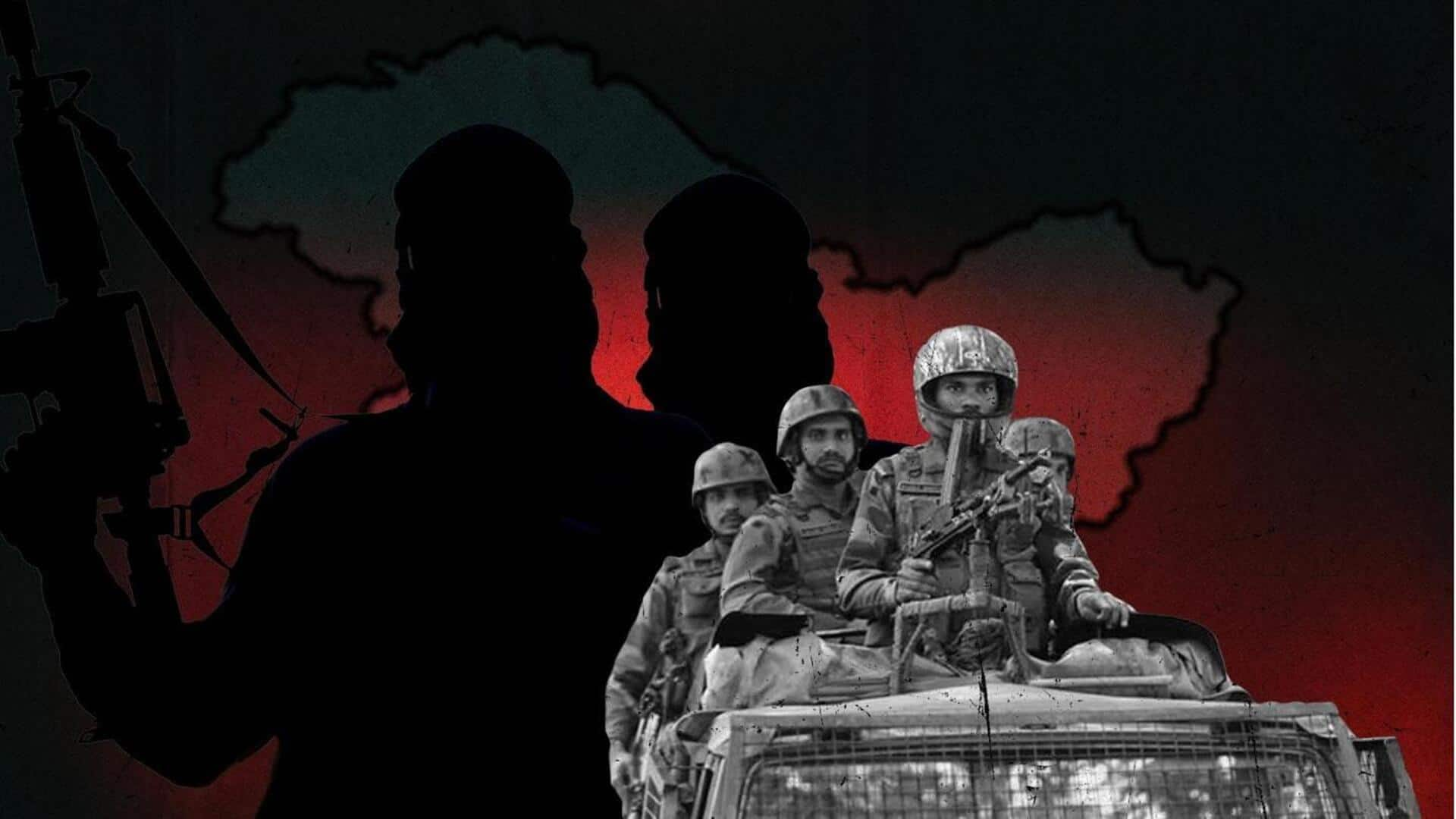
J&K: Why Rajouri, Poonch are becoming hotspots for terrorists
What's the story
The border districts of Rajouri and Poonch in Jammu and Kashmir (J&K) have turned into hotspots for Pakistan-backed terrorism over the past two years (since October 2021). During this period, these areas have reported nine major attacks, resulting in the deaths of 29 security personnel, nine civilians, and eight terrorists. But what makes these districts a hotspot for terrorist activities? Here, we try to decipher.
Details
Former J&K police official talks about inflation in terror hotspots
The hilly landscape of Jammu's Rajouri and Poonch and their proximity to the Line of Control (LoC), which are traditionally more accessible infiltration routes for terrorists, are some of the reasons there has been a spike in terror activities, as per experts. According to former J&K Police Director General (DG) Shesh Paul Vaid, terrorists have many natural hideouts after entering these areas, such as big boulders in dense forest areas.
What Next?
Reactivating Rajouri as a transit route
As such, when security forces try to hunt them down, terrorists can either shift to the other side of the Pir Panjal into southern Kashmir or return to Pakistan by crossing the LoC, Vaid stated. The former DG further expressed his feeling that Islamabad could be targeting minorities to create fear and force their migration from the hills of Jammu, reported the Hindustan Times.
Twitter Post
Small cave used by terrorists in Rajouri forests
J&K: This was the small cave being used by terrorists as a hideout in the forests of Rajouri area. Such hideouts are relatively difficult to detect and breach. Two terrorists were killed in the operation Solki by the security forces including the Special Forces of the Indian… pic.twitter.com/Y7WvCI96Ve
— ANI (@ANI) November 24, 2023
Know more
Recent encounter between security forces, terrorists in Rajouri
A gunfight broke out again on Wednesday morning in Rajouri, claiming the lives of five soldiers. The encounter started when the Indian Army and J&K Police conducted a joint operation in the area following intelligence inputs about the presence of terrorists. Security forces on Thursday confirmed the killing of two Pakistani terrorists, including a top-ranked Lashkar-e-Taiba (LeT) terrorist, during the gunfight in Rajouri.
Twitter Post
Pictures of 5 Army personnel who were martyred
Rajouri encounter, J&K: Pictures of 5 Army personnel- Capt MV Pranjal, Capt Shubham Gupta, Hav Abdul Majid, L/Nk Sanjay Bisht and Paratrooper Sachin Laur, who made the supreme sacrifice during the encounter.
— ANI (@ANI) November 24, 2023
Two terrorists were also killed in the encounter. pic.twitter.com/noRV243K7m
More details
Support from locals
Another factor is that the militancy has local backing in these areas, allowing for attacks and easy retreats into the forests, ThePrint reported. Brigadier Neeraj Bali (Retired), who served in these areas during the 1990s and early 2000s, observed, "What is surprising is that areas of Rajouri, Surankote, Poonch, and Kalakote became active after the militants got the support of a section of population. The point is that the population are essentially Pahari-speaking Kashmiris."